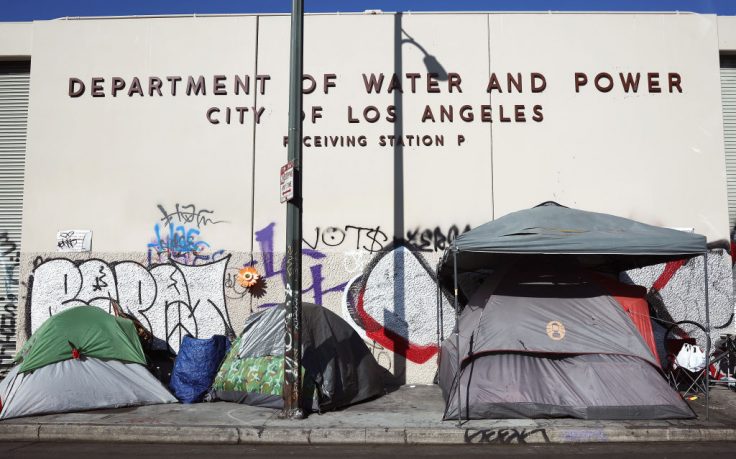Golden State has spent $24 billion in five years as crisis worsens

California is not tracking the billions in taxpayer dollars that have been poured into the homelessness crisis and the agency in charge has not established a process for keeping tabs on myriad programs and whether or not they work, the state’s auditor said Tuesday.
The agency responsible for homelessness spending, the California Interagency Council on Homelessness, “has not established a consistent method for gathering information on homelessness programs’ costs and outcomes, leaving the state without information that would allow decision-makers to make data-driven decision,” the auditor wrote.
The report, commissioned by a bipartisan group of state lawmakers last year amid growing concerns over the amount that California has spent without any progress, comes as California watches its homeless population keep growing to more than 181,000 people last year despite spending $24 billion on the problem over the past five years. California has more homeless people than any other state and accounts for nearly a third of the nation’s total.
Meanwhile, expenditures show little sign of letting up. A March ballot initiative authorizes the state to borrow an additional $6.4 billion for the crisis, and early this year, President Joe Biden awarded more than $600 million in homelessness grants to California. Homeless advocates are lobbying legislators and California governor Gavin Newsom to maintain the state’s funding even as it grapples with a $73 billion budget deficit.
The California Interagency Council on Homelessness has only once, at the legislature’s direction, tracked and reported on the state’s homelessness spending, according to the auditor. In doing so, the agency covered only the 2018-19 and 2020-21 fiscal years.
“Currently, it has no plans to perform a similar assessment in the future,” the report said. “In the absence of an up-to-date assessment, the state and its policymakers are likely to struggle to understand homelessness programs’ ongoing costs and achieved outcomes.”
The agency has also failed to set a plan to meet legislative goals for its funding and to make sure the data it has collected on homelessness programs are accurate, the report said. Nor has it set a “consistent method” for tallying costs and measuring effectiveness of program efforts.
A representative said the agency has “made significant progress” in data collection since last January and is trying to “improve the quality of the data” it collects from local governments.
The agency’s official statement said that the audit “underscores a need to continue to hold local governments accountable, who are primarily responsible for implementing these programs and collecting data on outcomes that the state can use to evaluate program effectiveness.”
A separate audit that looked at how two major cities—San Jose and San Diego—managed their homelessness spending found a similar failure by local government officials to report on funding or check the effectiveness of the programs they bankroll.
Newsom, whose office did not respond to a request for comment, has long made homelessness a cornerstone of his policies. In 2003, as newly elected mayor of San Francisco, he vowed to make solving the city’s chronic homelessness a priority with a 10-year plan. Homelessness remains one of San Francisco’s biggest problems. And homelessness has been on the rise in the state under his tenure as governor.
“The state’s homelessness crisis has been decades in the making,” he said late last year as he announced more funding. “While there’s more work to be done, we are challenging the status quo with new, innovative solutions to get Californians off the streets and into housing.”













